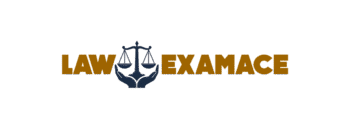When a hurricane strikes Florida, it can leave behind devastating damage — from roof destruction and flooding to lost belongings and structural collapse. In the aftermath, filing a hurricane damage insurance claim is critical to getting your home and life back in order. However, the claims process can be challenging, and mistakes can cost you thousands of dollars. To get the best possible outcome from your hurricane damage claim, it’s essential to take the right steps from day one.
1. Prioritize Safety First
Before worrying about property damage, make sure you and your family are safe. Avoid downed power lines, unstable structures, and standing water that may contain electrical currents or contaminants. If your home is unsafe to stay in, contact local authorities or the Red Cross for temporary shelter.
Once conditions are stable, return carefully to assess your property — but only if it’s declared safe by officials.
2. Document Every Bit of Damage
Thorough documentation is your strongest weapon in securing a fair settlement. Take high-quality photos and videos of all storm-related damage before beginning any cleanup. Include:
- Roof damage, missing shingles, or leaks
- Broken windows, doors, or siding
- Interior flooding or water stains
- Damaged furniture, electronics, and appliances
- Fallen trees or debris affecting your property
Keep a written list of all damaged items, including their original cost and estimated replacement value.
3. Prevent Further Damage
Insurance companies expect homeowners to take reasonable steps to minimize additional losses. Cover broken windows, tarp damaged roofs, and shut off utilities if necessary. Keep receipts for any temporary repairs — these costs are often reimbursable under your policy.
4. File Your Claim Promptly
In Florida, insurers are required to respond to your claim within specific timeframes — but those timelines start only after you file. Contact your insurance company as soon as possible, even if you don’t yet know the full extent of your damage. Provide accurate information but avoid guessing or exaggerating details.
You’ll be assigned an insurance adjuster, who will inspect your property. Be present during the inspection to ensure nothing is overlooked.
5. Get Independent Estimates
Insurance adjusters often underestimate repair costs. To ensure fairness, obtain independent repair estimates from licensed contractors. This helps you compare and challenge lowball offers from the insurer.
6. Consider Professional Representation
If your claim is delayed, underpaid, or denied, you have options. A public adjuster or property damage attorney can review your policy, gather evidence, and negotiate for a higher settlement. In many cases, they can recover significantly more than the insurer’s initial offer.
Final Thoughts
Getting the best outcome from a hurricane damage claim in Florida requires preparation, persistence, and attention to detail. By documenting everything, staying organized, and standing firm during negotiations, you can protect your investment and restore your property faster.
When disaster strikes, your insurance policy should work for you — not against you. With the right approach, you can ensure it does exactly that.
This post was written by Kelly-Ann Jenkins of https://www.jenkinslawpl.com/. Kelly-Ann is an insurance claim Lawyer. The information on this site is not intended to and does not offer legal advice, legal recommendations, or legal representation on any matter. Hiring an attorney is an important decision, which should not be based on advertising. You need to consult an attorney for legal advice regarding your situation.
The information provided on this website does not, and is not intended to, constitute legal advice; all information, content, and materials available on this site are for general informational purposes only. Information on this website may not constitute the most up-to-date legal or other information. This website contains links to other third-party websites. Such links are only for the convenience of the reader, user or browser; the ABA and its members do not recommend or endorse the contents of the third-party sites.

